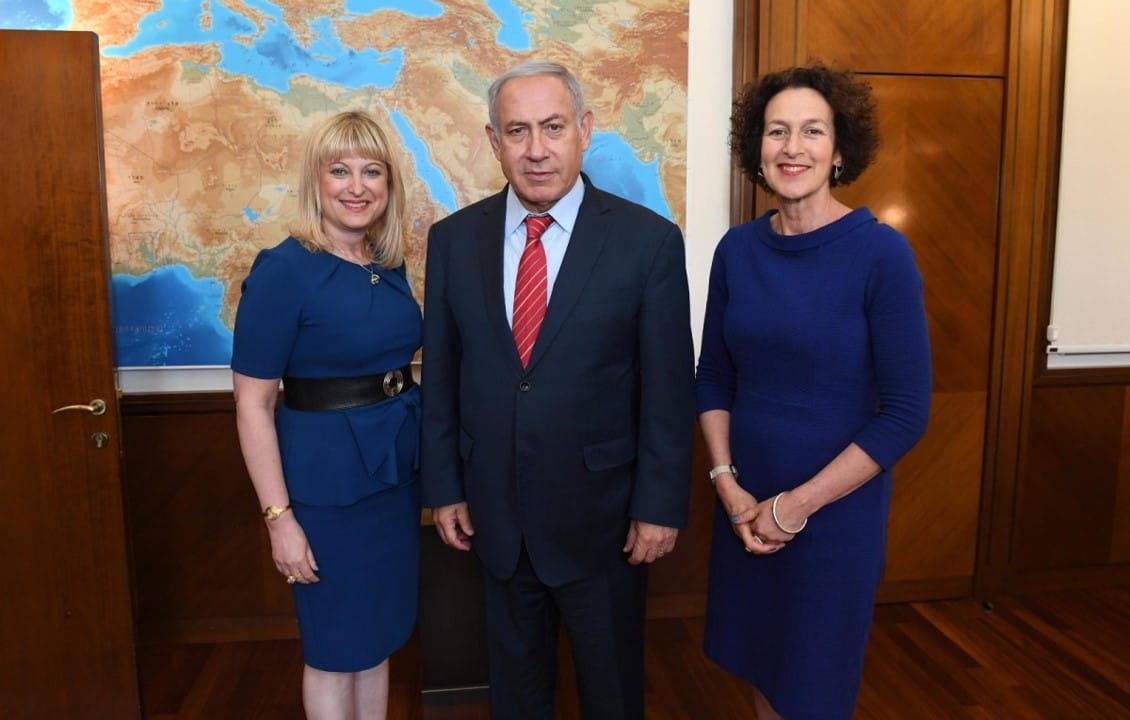The Board of Deputies’ neutrality on annexation will doom it
The Board gained prominence through its forthright stance on Labour antisemitism. Its mealy-mouthed response to annexation will condemn it to irrelevance.

Article 3d of its constitution states that the Board of Deputies will “take such appropriate action as lies within its power to advance Israel’s security, welfare and standing”. Its president has said that “only a two-state solution will come anywhere near to satisfying the just demands of both sides.” Given that annexation will incontrovertibly damage Israel’s security, welfare and standing and kill any remaining hopes of a two-state solution, you’d think the Board might have something to say about Israel’s proposed annexation of the West Bank. Not so, it seems.
Despite immense pressure from the British Jewish community – two open letters garnering over 1000 signatures, and another letter from 41 deputies – the Board has kept its head firmly in the sand. “There isn’t going to be a consensus that is going to be reached,” president Marie van der Zyl prevaricated at the Board’s latest plenary meeting, “and I am very concerned that the Jewish community stays together as a community at what is clearly a divisive time.”
Annexation is the most notorious aspect of the coalition agreement – forged at the end of an 18-month stalemate, during which Israelis were sent to the polls three times – between Netanyahu’s Likud and Gantz’s faction of Blue & White. While it’s unclear what it would look like in practice, but in line with the Trump administration’s plans, a sizeable tranche of Area C – the 60 per cent of the West Bank currently controlled entirely by the Israeli Defence Force – would transfer from military to civic administration, becoming relatively indistinguishable from Tel Aviv or Haifa. Unilateral annexation would send a clear message to those listening. A radical and permanent departure from the status quo, it would declare that Israel no longer cares about being perceived as a liberal democracy, let alone a two-state solution. Why, faced with a move so clearly in contravention of its stated aims and so vociferously opposed by its constituents, is the Board staying silent?
Many are surprised particularly given that it has not shied away from similar issues in the past. The Board regularly condemns Palestinian acts of terror, and has praised America and Australia for moving their embassies to Jerusalem (and even pushed for the UK to follow suit). Then again, the Board has also tactically kept its mouth shut, such as in March last year when Netanyahu made a pact with the Kahanist party Otzma Yehudit. For years, the Board has not espoused a coherent policy on Israel, then, but rather a constructively ambiguous one. It has paid lip service to a two-state solution while insisting that such a solution is for the two sides to negotiate. When in December one deputy suggested that one way of taking meaningful positions on Israel and Palestine would be to survey the deputies’ views on the issue, the plan was leaked to right-wing shock jock David Collier and promptly shelved.
One explanation for the Board’s scleroticism may be the failure of its internal democracy. The deputies, of which there are currently around 300, are elected representatives of synagogues, denominations or other Jewish institutions spanning much, but decidedly not all, of the community. Haredim will not engage with the Board, while unaffiliated Jews have no way of being represented on the Board. Even those who fit within the Board’s umbrella do not always feel so: it is widely known that most elections for deputies, whose terms are unlimited, are not contested. Between endless, ill-tempered and largely inconsequential debates, the Board has voted on only two substantive policy issues in recent years: a collaboration with Oxfam, and the admission of Yachad.
Another reason for the Board’s milquetoast manner may lie in its history. The Board was formed in 1760 when, shortly after George III took the throne, the elders of London’s Sephardi community appointed seven deputies to go and congratulate the new king. From then on, the deputados would make regular representations to the monarch in a non-confrontational form of Jewish lobbying known as shtadlanut. It’s little surprise, then, that periodic addresses from the Israeli ambassador receive little or no challenge, beyond from progressive deputies. The Board retains an outdated perception of the diaspora as Israel’s silent benefactors and supporters, while delegitimising any constructive engagement.
However, the Board has shown itself willing to abandon shtadlanut when the moment calls for it. Its forthright interventions in the Labour antisemitism crisis, from denouncements of Corbyn’s actions to its muscular set of pledges it presented to would-be party leaders, have made it one of the most prominent organisations in British politics, and cemented its standing within the community. The Board recognised that Labour antisemitism was a crisis point for British Jewry, and required more than its usual softly-softly approach. Annexation is just such a crisis – and by refusing to act on it, the Board will condemn itself to irrelevance. ▼
Amos Schonfield represents Yachad on the Board of Deputies.
Author

Amos Schonfield represents Yachad on the Board of Deputies.
Sign up for The Pickle and New, From Vashti.
Stay up to date with Vashti.



